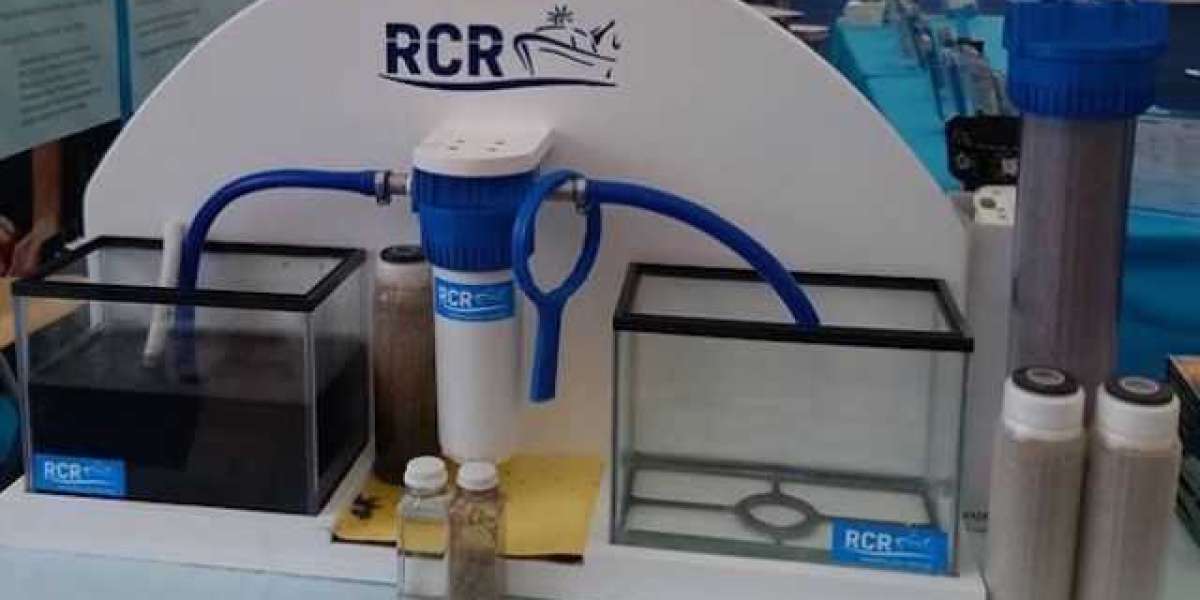In the world of maritime operations, maintaining environmental integrity is a growing concern. One critical aspect of this is the management of bilge water, which can pose significant pollution risks if not properly handled. Marine bilge filters play a pivotal role in this process, offering a practical solution to reduce water pollution and protect our oceans.
Understanding Bilge Water and Its Environmental Impact
Bilge water accumulates in the lowest part of a ship or boat—the bilge—due to leaks, condensation, or cleaning activities. This water often contains a mix of oil, fuel residues, chemicals, and other contaminants. If bilge water is not properly treated before being discharged, it can lead to severe environmental consequences.
- Oil Pollution: Even small amounts of oil can create a thin, harmful layer on the water's surface. This layer blocks sunlight, affecting aquatic plants and disrupting the photosynthesis process. The consequences ripple through the food chain, impacting fish, birds, and other marine organisms.
- Chemical Contaminants: Bilge water can also contain hazardous chemicals, such as solvents and heavy metals. These substances can be toxic to marine life and can contaminate the food chain, affecting both wildlife and human populations that rely on these waters for food.
- Ecosystem Disruption: The discharge of untreated bilge water can disrupt marine ecosystems, leading to the decline of fish populations, the loss of biodiversity, and damage to sensitive habitats like coral reefs.
The Role of Marine Bilge Filters
Marine bilge filters are designed to address these environmental challenges by removing pollutants from bilge water before it is discharged into the ocean. Here’s how they help reduce water pollution:
Effective Oil Removal
One of the primary functions of marine bilge filters is to remove oil from bilge water. Coalescing filters are commonly used for this purpose. They work by separating oil droplets from the water. The filter media causes small oil droplets to coalesce into larger ones, which can then be easily removed. This process ensures that the oil content in the bilge water is reduced to levels that are compliant with environmental regulations.
Adsorption of Chemical Contaminants
Adsorption filters use materials like activated carbon to attract and trap contaminants. These filters are particularly effective at removing chemicals, solvents, and heavy metals from bilge water. By adsorbing these pollutants, marine bilge filters help prevent them from entering the ocean, thus reducing the risk of chemical pollution.
Advanced Filtration Techniques
Some marine bilge filters use advanced technologies, such as membrane filtration, to provide a high level of cleanliness. Membrane filters have semi-permeable membranes that separate contaminants from the water. This type of filter can remove even very small particles and pollutants, ensuring that the discharged water meets stringent environmental standards.
Benefits of Marine Bilge Filters in Maritime Operations
The installation of high-quality marine bilge filters offers several benefits for both the environment and maritime operations:
Enhanced Environmental Protection
The most significant benefit of marine bilge filters is their contribution to environmental protection. By removing oil and other contaminants from bilge water, these filters help prevent pollution and protect marine ecosystems. Cleaner oceans lead to healthier aquatic life, improved water quality, and more sustainable marine environments.
Compliance with Environmental Regulations
Maritime operations are subject to stringent regulations governing the discharge of bilge water. Many countries have established limits on the amount of oil and contaminants that can be present in discharged water. Marine bilge filters are designed to help vessels comply with these regulations by ensuring that the discharged water meets legal standards. Compliance not only avoids legal penalties but also demonstrates a commitment to responsible environmental practices.
Improved Vessel Performance
Effective filtration of bilge water can also enhance the overall performance of a vessel. Contaminants in bilge water can cause damage to engines, pumps, and other critical components. By removing these pollutants, marine bilge filters help prevent damage, reduce maintenance costs, and extend the lifespan of the vessel's components.
Cost Savings
Investing in marine bilge filters can lead to cost savings in the long run. Proper filtration helps avoid fines for non-compliance with environmental regulations and reduces the need for costly repairs caused by contamination. Additionally, well-maintained filters contribute to the efficient operation of the vessel, which can further reduce operational costs.
Positive Reputation
Using marine bilge filters enhances the reputation of maritime operators as environmentally responsible. Demonstrating a commitment to reducing water pollution and adhering to regulations can build trust with clients, stakeholders, and the public. A positive reputation for environmental stewardship can also lead to business opportunities and partnerships.
Best Practices for Marine Bilge Filter Maintenance
To ensure that marine bilge filters operate effectively, it is essential to follow best practices for maintenance:
Regular Inspections
Conduct regular inspections of the marine bilge filters to check for signs of wear, clogging, or damage. Regular maintenance ensures that the filters continue to perform optimally and that any issues are addressed promptly.
Proper Disposal
Dispose of used filter elements and contaminated materials in accordance with environmental regulations. Avoid dumping these materials into the ocean or other water bodies.
Training and Education
Ensure that crew members are trained in the proper use and maintenance of marine bilge filters. Educate them about the importance of filtration in preventing water pollution and protecting marine environments.
Upgrading Filters
Consider upgrading to newer, more efficient marine bilge filters as technology advances. Advanced filters may offer better performance and greater environmental protection.
Conclusion
Marine bilge filters are essential tools in the effort to reduce water pollution from maritime operations. By effectively removing oil, chemicals, and other contaminants from bilge water, these filters help protect marine ecosystems, ensure compliance with environmental regulations, and enhance vessel performance. Investing in high-quality marine bilge filters not only benefits the environment but also offers cost savings, improves operational efficiency, and boosts the reputation of maritime operators. As we continue to prioritize environmental sustainability, the role of marine bilge filters becomes increasingly vital in safeguarding our oceans for future generations.







